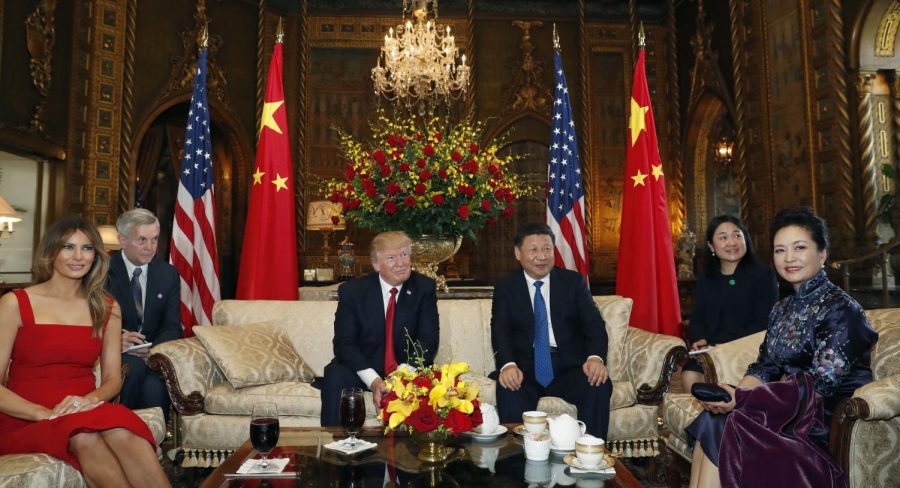Trump’s Tariff’s: Analyzing U.S.-China Trade Policy
November 24, 2018
Consumerism sustains the American economy, with holidays such as Black Friday and Christmas providing the necessary impetus. Having said that, the Chinese government has begun involvement in trade to increase the number of goods produced in China for the US market. However, because of the power of the American buyer, consumers and entrepreneurs alike are placing increased emphasis on the production of goods in the US rather than importing them from China. In response to perceived unfair trade practices, President Donald Trump has imposed trade tariffs on China in order to motivate American manufacturers to produce their goods domestically rather than abroad, as well as to protect American businesses from being “undercut” by producers in China.
Nevertheless, the general public has scrutinized this policy since its announcement, worried by news about possible increases in prices for consumers and the detrimental effects this tariff could have on small businesses. That is, because of increased prices for both good imports and consumers, many small businesses reliant on having their goods produced abroad have been put at risk of going bankrupt. However, bigger businesses have also been at a similar risk.
The U.S. and China have a long political and economic history. While many U.S. businesses are reliant on Chinese-produced goods, the Chinese economy relies on manufacturing opportunities provided by U.S. businesses. Put simply, trade is a two way street. That is not to say that trade with China has always been struggle-free. 1994 marked the first of what would become many Intellectual Property Right (IPR) conflicts, which in turn led to trade disagreements. IPRs are regulations pertaining to intangible properties such as copyright and patents, rights which the U.S. government wants the Chinese to protect. An agreement between the countries helped to subdue future disputes between China and the U.S. were subdued before any long term effects were set into action, and the two countries have remained trading partners. That being said, this new Trump tariff is possibly the most detrimental policy put into effect and has already engaged China in a trade-war.
Many U.S. businesses rely on importation of Chinese manufactured goods, with offices located in the U.S. and production carried out abroad. This is because manufacturing abroad is often cheaper than manufacturing domestically, especially in places like China where goods production is highly specialized. Enforcing taxes on imports could be detrimental for large companies, and they could significantly increase the amount of money spent for production by both companies and consumers. For example, a recent announcement from the motorcycle company Harley-Davidson stated that the new tariff would raise production costs from $45 to $50 million. Because of this increase in import costs, the price of a standard Harley-Davidson motorcycle would increase by about $2,200.
It is also important to note that small businesses suffer the most from this new policy. Entrepreneurship is on the rise in the U.S., having been popularized by shows such as Shark Tank and inspired by innovative businesses such as Apple. Today, there are about 28 million small businesses, and 22 million of those are independently run. This new tariff could be detrimental to millions of small businesses, raising the cost of imported goods so much that these businesses could essentially go bankrupt. This would not only put the economy in decline, but it could also lead to a rise in unemployment.
Essentially, is the Chinese tariff a good policy? Admittedly, while U.S. production should be highly encouraged, imposing tax on imports is bound to backfire. Big companies are likely to find loopholes around this new policy and consumership could decline due to significantly higher prices on goods. This in turn could lead to a potential economic crisis. In addition, many small businesses, as mentioned, would go out of business putting unemployment on the rise and leading to an economic decline. The tariff could also damage U.S. relations with China, seeing as exports largely maintain the Chinese economy. So, while American production is certainly to be encouraged, tariffs do little good for either side.








